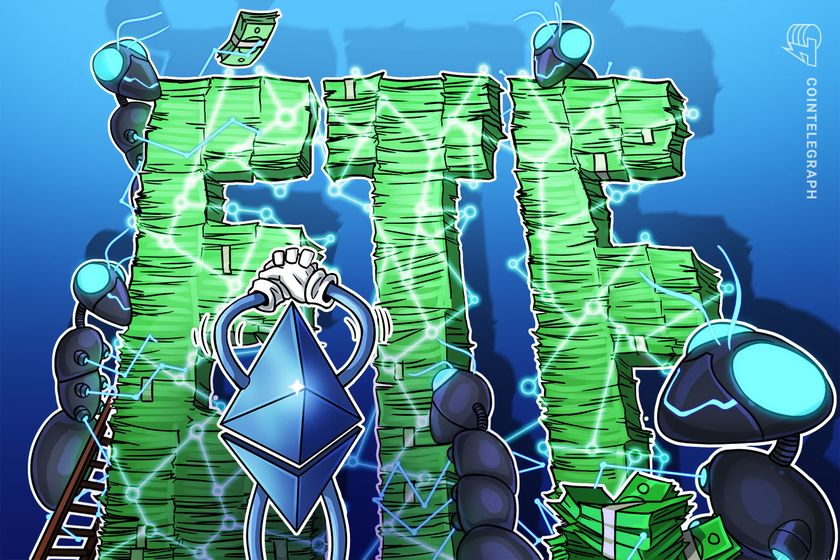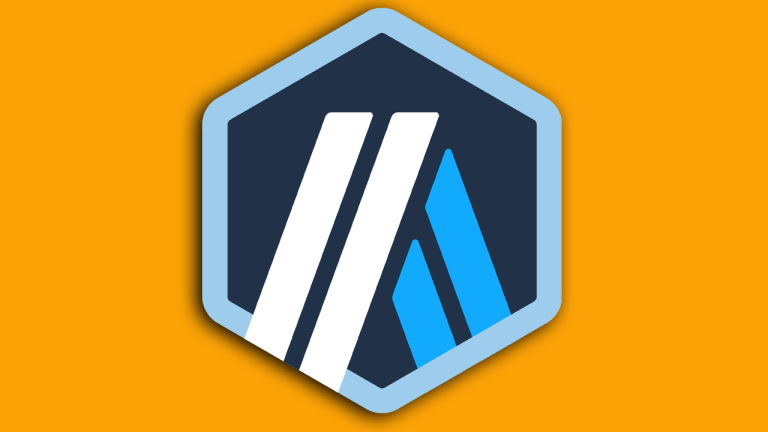The blockchain and AI bond, explained

Discover the potential of combining blockchain and AI for enhanced transparency, privacy, collaboration and innovation in various industries.
Emerging trends and possibilities for the future of the blockchain and AI bond
The future potential for the relationship between blockchain and AI is enormous. One may anticipate more developments in privacy-preserving machine learning algorithms, the expansion of decentralized AI marketplaces, and increased accountability and transparency in AI systems as technology develops.
Integration of blockchain technology and federated learning is one such trend. With this setup, it is possible to train AI models on decentralized data without sacrificing privacy. Organizations can work together and cooperatively enhance AI models while preserving control over sensitive information by keeping data localized and secure.
The rise of decentralized AI marketplaces is another encouraging development. The development of open and transparent marketplaces where developers can share and make money from their AI models, algorithms and data is made possible by blockchain-based platforms. The advancement of AI research and development is eventually facilitated by this decentralized strategy, which also promotes collaboration, encourages creativity, and assures fair pay for contributors.
Additionally, there are opportunities for improved explainability and auditability when blockchain and AI are combined. The decision-making process is made visible and traceable by documenting the actions involved in AI model training and inference on the blockchain. This can help to improve comprehension of results caused by AI, enable regulatory compliance, and increase confidence in AI systems.
Potential challenges and limitations of combining blockchain and AI
The combination of blockchain and AI presents challenges concerning scalability, energy use, interoperability, data privacy and implementation complexity.
Scalability is a major issue since blockchain networks can find it difficult to deal with the big data and computing demands of AI systems in real-time. Environmental issues are also brought up by both systems being computationally intensive. To achieve smooth integration between various blockchain networks and AI models, challenges with interoperability and standardization must be resolved.
Data security and privacy are also essential considerations. AI algorithms may process sensitive information that needs to be protected, whereas blockchain offers a secure and immutable data structure. It can be difficult to strike a compromise between data privacy and the advantages of AI analysis, particularly in sectors like healthcare and finance where strict privacy laws apply.
Adoption may be hampered by implementation and administrative complexity, especially for smaller organizations. Despite these obstacles, efforts are still being made to get around them. To fully realize the potential of merging blockchain with AI in diverse businesses, it is imperative to address these challenges.
How blockchain and AI are being combined in various industries
By bringing new levels of transparency, security and efficiency, the marriage of blockchain and AI is revolutionizing many different industries.
Blockchain technology guarantees the immutability and transparency of data in supply chain management, and AI algorithms may analyze this data to improve logistics and spot abnormalities. To ensure the safety and authenticity of food supplies, Walmart and IBM, for instance, have teamed up to track them using blockchain and AI.
Blockchain in healthcare offers private patient information protection and secure sharing of medical records. This data can be used by AI to develop personalized treatment regimens and enhance diagnostics. One example of a blockchain-based platform is Medicalchain, which enables AI-driven analysis while giving users access to and control over their medical data.
Blockchain and AI work together to improve fraud detection, risk assessment and customer identification in the financial services industry. Combining AI algorithms with blockchain’s transparency and immutability increases the accuracy of spotting questionable activity. Blockchain and AI are being used by initiatives, such as Quantstamp, to increase the security of smart contracts in the financial sector.
Blockchain can be used by autonomous vehicles to enable decentralized and secure data sharing among vehicles, facilitating group decision-making. To enhance traffic management, safety and navigation, AI algorithms can analyze shared data. The MOBI project aspires to build an autonomous car mobility ecosystem based on blockchain technology.
Synergies between blockchain and AI
Blockchain technology can improve data integrity, allow for secure data cooperation and sharing, make tokenization and incentives easier, and support decentralized AI governance, all of which can make AI systems more reliable and open.
Enhanced data integrity
The immutability and transparency that blockchain technology possesses by its very nature can improve the integrity of data utilized in AI systems. Blockchain technology enables AI algorithms to access tamper-proof and verifiable data, ensuring the precision and dependability of forecasts and insights.
Blockchain can be used, for instance, in supply chain management to track and document the movement of items. The data can then be analyzed by AI systems to find patterns, spot abnormalities and improve logistics procedures.
Secure data sharing and collaboration
AI systems need access to diverse and huge data sets, and blockchain can offer a safe and decentralized platform for data sharing. Blockchain enables data sharing between numerous parties without relying on a single party, maintaining privacy and control over sensitive data.
For instance, in the healthcare industry, patient records kept on a blockchain can be safely shared with AI models for research or diagnosis while protecting the privacy of sensitive information.
Tokenization and incentives
Blockchain technology can make it possible to create tokens or coins that make it easier to incentivize and monetize AI environments. These tokens can be given out as compensation to people who provide computational resources, train models or provide data. Such rewards can promote teamwork and encourage participation in AI research and development.
One notable example is SingularityNET, a platform that integrates blockchain and AI to create a decentralized market where AI agents can give services and be compensated with tokens for their efforts.
Decentralized AI governance
Blockchain technology can help decentralized governance and decision-making processes for AI systems. Stakeholder participation in decision-making can be ensured through the use of smart contracts and decentralized autonomous organizations (DAOs), ensuring fairness and transparency.
This can be especially helpful in fields like policy enforcement or the choice of AI models. Blockchain is used, for instance, by Ocean Protocol to create decentralized data marketplaces and governance frameworks, enabling participants to decide on data access and sharing as a group.
The relationship between blockchain and AI
A number of industries could be revolutionized by the dynamic and synergistic link between blockchain and artificial intelligence (AI). Blockchain technology can alleviate some of the issues related to AI, such as data privacy, security and trust, due to its decentralized and transparent nature.
One of the key advantages of blockchain for AI is in the realm of data sharing and privacy. Huge data sets are essential for AI systems, yet sharing data is sometimes constrained by privacy concerns. Without relying on a centralized authority, blockchain technology’s decentralized architecture enables secure data collaboration and sharing among numerous parties. It promotes trust and encourages data sharing while allowing people to retain control over their data and offering AI algorithms only the access they need.
Additionally, the immutability and tamper-resistance of blockchain improve the reliability of AI systems. Blockchain’s transparency can offer a verifiable audit trail, assuring that the data utilized for AI training is real and unaltered. This can be especially helpful in industries where data quality and reliability are crucial, such as healthcare or finance.
Blockchain can also make it possible for AI models to be used in a decentralized fashion, utilizing the strength of distributed networks. For instance, users can check the performance and accuracy of AI models by looking at the transaction history and feedback from other users, which offers transparency and immutability. As a result, scalability, single points of failure, and general effectiveness and robustness of AI systems may all be improved.
It’s crucial to remember that there are obstacles and restrictions to take into account in the relationship between blockchain and AI. Due to slower transaction rates and higher energy usage as compared to conventional centralized systems, blockchain technology is currently not scalable. Furthermore, the deployment of AI algorithms on blockchain networks can be difficult due to the computationally demanding nature of these algorithms.
Nevertheless, ongoing research and development in blockchain and AI are looking for solutions to these issues and maximizing the benefits of their interaction. One can anticipate the emergence of creative solutions that use blockchain and AI to spur transformational change across a range of industries as technology continues to improve.









